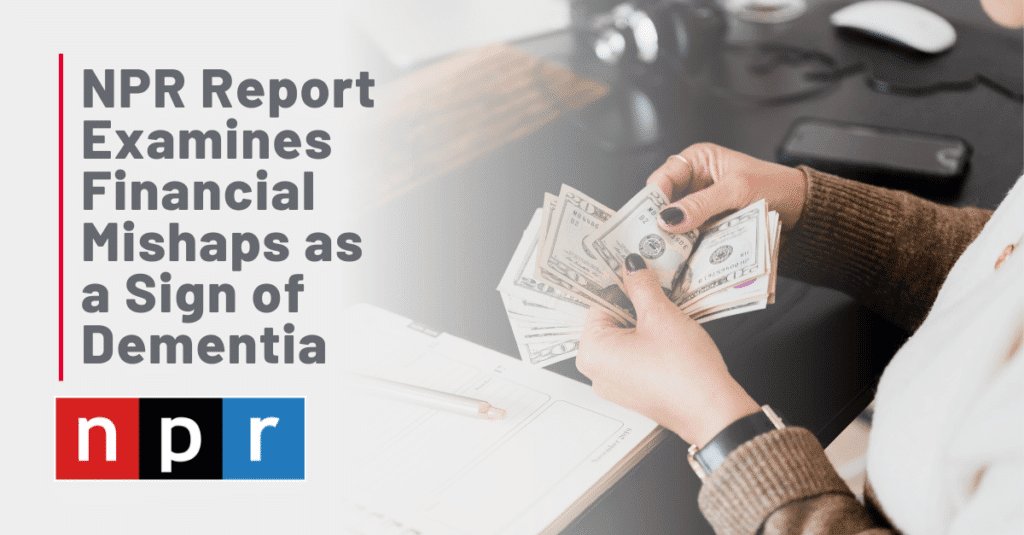NPR Report Examines Financial Mishaps as a Sign of Dementia

A report published earlier this year by NPR explores how how financial mishaps can often be an early sign of dementia.
The report introduces Angela Reynolds, who first took notice of her mother’s dementia after financial issues arose that jeopardized her childhood home. When Reynolds realized something was wrong, it was too late to prevent the bank from foreclosing on it. The house was a place of pride for the family: when Reynolds’ mother bought it in 1966, she became one of the first Black homeowners in New Haven, Conn.
“[The house] should have been a legacy for so many different reasons,” Reynolds told NPR.
According to Reynolds, her mother had withdrawn large volumes of cash from her accounts. Yet she wasn’t paying bills and had refinanced her mortgage to a higher rate. Before the loss of the house, there were no apparent signs that her mother had dementia.
Sharon Gwinn of Pittsburgh, Pa., similarly lacked signs that her husband had dementia until it was too late. While shopping one day, her card was declined despite her account ostensibly having thousands of dollars. Gwinn’s first thought was that her identity had been stolen. However, she later found out that her once-frugal husband had spent $3,000 in a bar the night before buying drinks for strangers.
Robin Hilsabeck, a neuropsychologist at the UT Austin Dell Medical School, told NPR that while money management issues can be an early sign of dementia, how those issues manifest may help determine which form of dementia someone has. The forgetfulness that is common in Alzheimer’s disease, for example, might contribute to someone forgetting to pay bills.
Common symptoms of FTD can contribute to financial difficulties in many different ways. Disinhibition and impaired judgment, for example, can make someone with FTD more likely to fall prey to financial scams or lose their job. Anosognosia, a lack of awareness of one’s condition – and a common symptom of FTD — can make it impossible for a diagnosed person to understand how their diagnosis is contributing to their reckless spending.
The report highlights a misconception that banks are looking after their finances for hiccups.
Firms offering brokerage accounts must attempt to get clients to name a “trusted contact” to be notified if abnormal activity develops. However, regular bank accounts and other services are not required to have the same protections. While the Consumer Financial Protection Bureau recommended in 2016 that firms offer better protections to clients, former CFPB staffer Naomi Karp told NPR that little had been done.
“We would have meetings repeatedly with some of the largest banks, and they gave a lot of lip service to these issues, but when it came right down to it, change is very, very slow,” Karp said.
Are you worried about FTD impacting your family’s finances? Click here to read about reducing the risk of financial problems in FTD.
If financial issues related to FTD are a pressing issue for your family, contact AFTD’s HelpLine for guidance on navigating the situation. Contact the HelpLine at 1-866-507-7222 or info@theaftd.org.
By Category
Our Newsletters
Stay Informed
Sign up now and stay on top of the latest with our newsletter, event alerts, and more…
